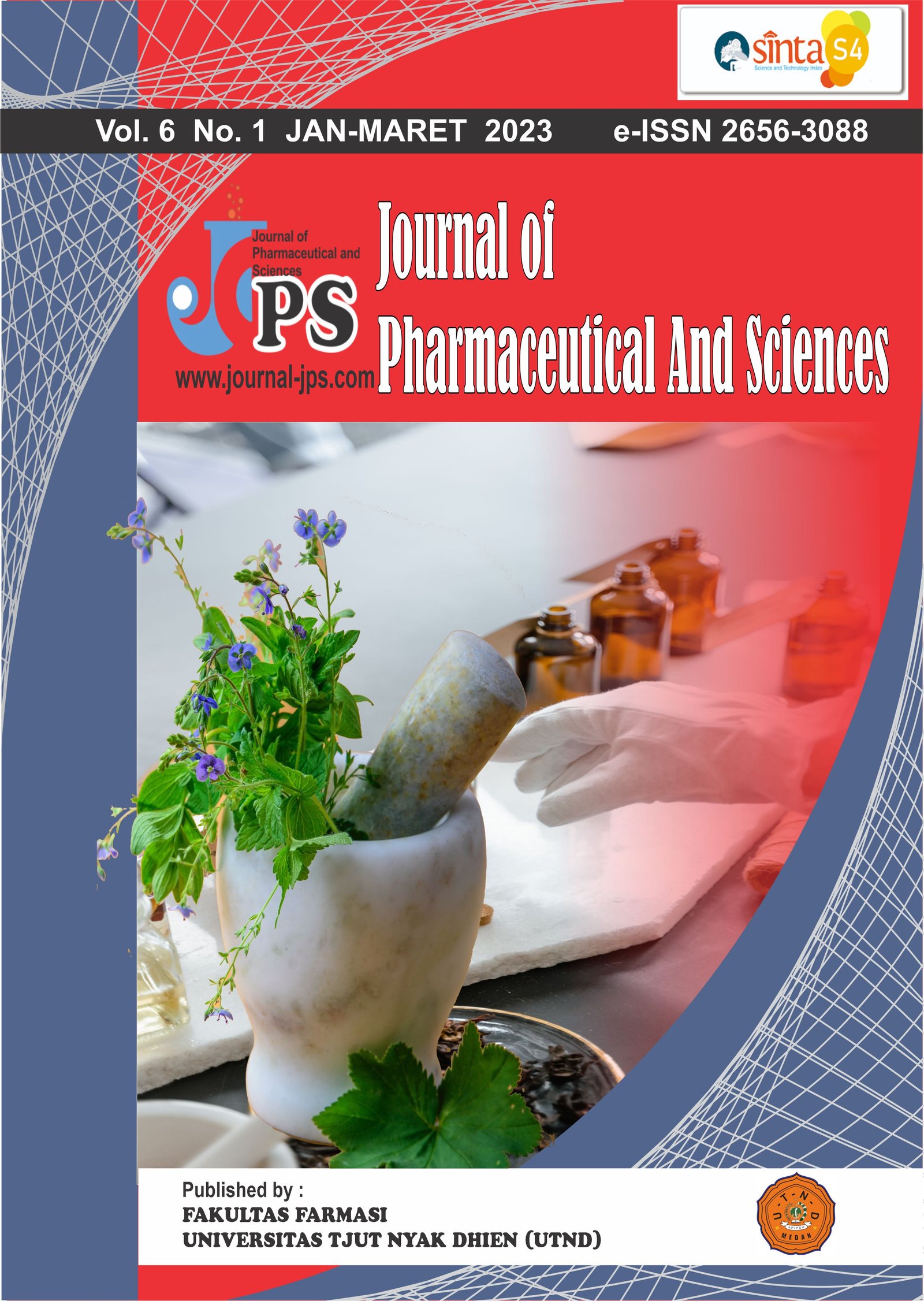SCREENING PHYTOCHEMICALS AND ANTIBACTERIAL ACTIVITY OF MICROALGAE STRAIN Scenedesmus sp. AUMA-020
Isi Artikel Utama
Page: 46-51
Abstrak
In this study was aimed at identifying active substances that can be used as antibacterial agents. To reach this target, different solvent extracts (n-hexane and methanol) of microalgae strain Scenedesmus sp. AUMA-020 were examined. Phytochemical screening of n-hexane extract from microalgae strain Scenedesmus sp. AUMA-020 showed the presence of terpenoids and saponins, while methanol extracts contained flavonoids, phenolics, steroids, terpenoins and saponins. N-hexane extract has strong antibacterial activity compared to methanol extract. Both extracts isolates showed no antibacterial activity against Escherichia coli bacteria. In conclusion, the studied microalgae strain Scenedesmus sp. AUMA-020 can be considered as a potential natural source of bioactive compounds with antibacterial activity.
Unduhan
Rincian Artikel

Artikel ini berlisensiCreative Commons Attribution-NonCommercial-ShareAlike 4.0 International License.
Referensi
Amaro, H., Guedes, A., & Malcata, F. (2011). Antimicrobial activities of microalgae: an invited review. Science against Microbial Pathogens: Communicating Current Research and Technological Advances.
Angayarkanni, D. M. (2013). Phytochemistry And antibacterial activity Of Chlorosarcinopsis Species. INTERNATIONAL JOURNAL OF SCIENTIFIC & TECHNOLOGY RESEARCH.
Bhagavathy, S., Sumathi, P., & Jancy Sherene Bell, I. (2011). Green algae Chlorococcum humicola- a new source of bioactive compounds with antimicrobial activity. Asian Pacific Journal of Tropical Biomedicine. https://doi.org/10.1016/S2221-1691(11)60111-1
Capelli, B., & Cysewski, G. R. (2010). Potential health benefits of spirulina microalgae*. Nutrafoods. https://doi.org/10.1007/bf03223332
Chaidir, Z., Fadjria, N., Armaini, & Zainul, R. (2016). Isolation and molecular identification of freshwater microalgae in Maninjau Lake West Sumatra. Der Pharmacia Lettre.
Cowan, M. M. (1999). Plant products as antimicrobial agents. In Clinical Microbiology Reviews. https://doi.org/10.1128/cmr.12.4.564
Dantas, D. M. de M., Oliveira, C. Y. B. de, Costa, R. M. P. B., Carneiro-da-Cunha, M. das G., Gálvez, A. O., & Bezerra, R. de S. (2019). Evaluation of antioxidant and antibacterial capacity of green microalgae Scenedesmus subspicatus. Food Science and Technology International. https://doi.org/10.1177/1082013218825024
Duerr, E. O., Molnar, A., & Sato, V. (1998). Cultured microalgae as aquaculture feeds. Journal of Marine Biotechnology.
Franklin R. Cockerill, III, M., & Jean B. Patel, PhD, D. (2015). M100-S25 Performance Standards for Antimicrobial Susceptibility Testing; Twenty-Fifth Informational Supplement. Clinical and Laboratory Standards Institute.
Laungsuwon, R., & Chulalaksananukul, W. (2013). 18. Antioxidant and anticancer activities of freshwater green algae, Cladophora glomerata and Microspora floccosa, from Nan River in northern Thailand. Maejo Int. J. Sci. Technol.
M. Bishop, W., & M. Zubeck, H. (2012). Evaluation of Microalgae for use as Nutraceuticals and Nutritional Supplements. Journal of Nutrition & Food Sciences. https://doi.org/10.4172/2155-9600.1000147
Najdenski, H. M., Gigova, L. G., Iliev, I. I., Pilarski, P. S., Lukavský, J., Tsvetkova, I. V., Ninova, M. S., & Kussovski, V. K. (2013). Antibacterial and antifungal activities of selected microalgae and cyanobacteria. International Journal of Food Science and Technology. https://doi.org/10.1111/ijfs.12122
Noaman, N. H., Fattah, A., Khaleafa, M., & Zaky, S. H. (2004). Factors affecting antimicrobial activity of Synechococcus leopoliensis. Microbiological Research. https://doi.org/10.1016/j.micres.2004.09.001
Prakash, J. W., Johnson, M., & Jeeva, S. (2011). Antimicrobial activity of certain fresh water microalgae from Thamirabarani River, Tamil Nadu, South India. Asian Pacific Journal of Tropical Biomedicine. https://doi.org/10.1016/S2221-1691(11)60149-4
Salem, O. M. A., Hoballah, E. M., Ghazi, S. M., & Hanna, S. N. (2014). Antimicrobial activity of microalgal extracts with special emphasize on Nostoc sp. Life Science Journal. https://doi.org/10.7537/marslsj111214.139
Shannon, E., & Abu-Ghannam, N. (2016). Antibacterial derivatives of marine algae: An overview of pharmacological mechanisms and applications. In Marine Drugs. https://doi.org/10.3390/md14040081
Wawrosch, C., & Zotchev, S. B. (2021). Production of bioactive plant secondary metabolites through in vitro technologies—status and outlook. In Applied Microbiology and Biotechnology. https://doi.org/10.1007/s00253-021-11539-w





